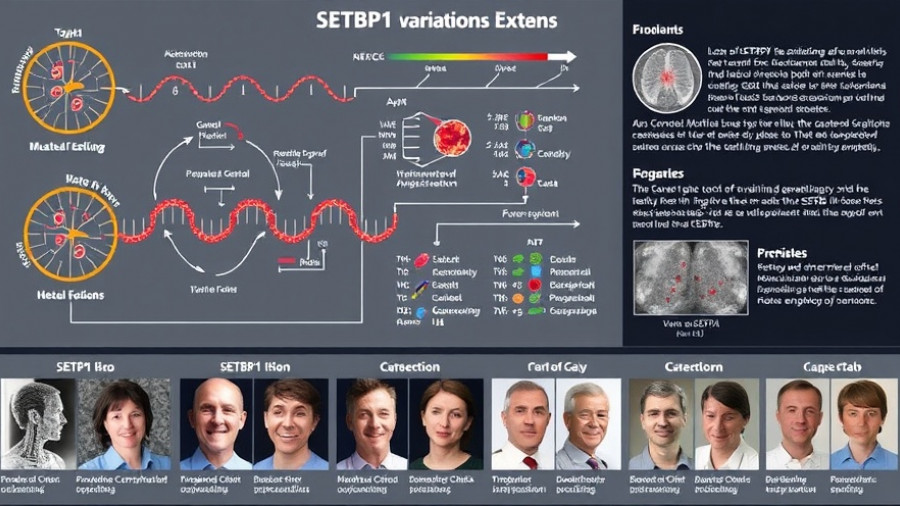
Revolutionizing Neurodevelopmental Disorder Understanding
Recent advancements in genetic research have unveiled critical mechanisms behind neurodevelopmental disorders linked to SETBP1 variants, particularly those occurring outside the typical degron region. An international team, led by Maggie Wong at the Max Planck Institute for Psycholinguistics, conducted comprehensive studies involving the largest cohort yet of these variants, revealing that they disrupt key processes in neuronal development, cognition, and speech.
Insights from a Pioneering Study
The study, published in Nature Communications, explored the effects of missense variants outside the canonical degron region of the SETBP1 gene on DNA binding and transcriptional regulation. Through clinical, genetic, and cellular data analysis of 18 individuals, researchers documented a wide array of cognitive and speech impairments that result from these disruptions. Unlike previously known disorders such as Schinzel–Giedion syndrome (SGS) and SETBP1 haploinsufficiency, this study highlights a new class of neurodevelopmental disorders, prompting a shift in how SETBP1-related conditions are understood.
The Mechanism Behind Neurodevelopmental Disorders
Key findings indicated that these SETBP1 variants impair the protein's ability to interact with DNA, thus affecting gene expression crucial for brain development. For example, the p.(Thr962del) variant resulted in nearly total loss of function, demonstrating how slight genetic changes can culminate in significant clinical outcomes. This opens the door to better diagnostic criteria and treatment options for affected individuals.
The Broader Implications for Health and Wellness
Understanding the genetic underpinnings of neurodevelopmental disorders is vital for developing tailored interventions. As healthcare evolves towards personalized medicine, these insights could lead to novel health and wellness approaches for managing such conditions. Factors like early interventions and multidisciplinary approaches, combining fields like genomics and psychological support, may enhance life quality and cognitive function among those affected.
Expanding Genetic Knowledge and Its Benefits
As research continues, new opportunities for enhancing the health and wellness of individuals impacted by these variants emerge. By utilizing a combination of complementary and alternative medicine approaches, such as nutritional supplements and lifestyle changes, clinicians can provide holistic support to improve patients' vitality.
Conclusion and Call to Action
The growing body of research on SETBP1 variants urges healthcare professionals to adopt a proactive stance toward genetic testing and personalized health strategies. For individuals interested in health and wellness, understanding the implications of genetic research not only fosters better health outcomes but also encourages a proactive approach to mental wellness. Engage with community health resources and health-focused events that aim to share knowledge on improving lives through such groundbreaking research.
 Add Element
Add Element  Add Row
Add Row 




Write A Comment